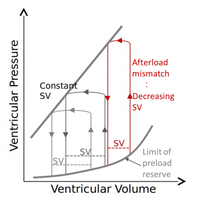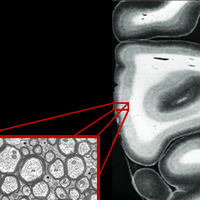Studienarbeiten
-
Risk factors and Prognostic Implications of Major Adverse Cardiovascular Events after Renal Transplantation
The objective of project is to characterize the incidence and risk factors for MACE after kidney transplantation. This project is an observational study assessing predictors of post-operative MACE in patients enrolled in the STCS who underwent renal transplant surgery in the University Hospitals of Basel, Bern, Geneva, Lausanne, San Gallen and Zurich. more -
CFD Analysis of a novel flow-stretch bioreactor
In this project, the magnitude and distribution of WSS inside two flow-chamber designs for cell culture is to be investigated via CFD. First, the impact of pulsatile flow in comparison to steady flow should be studied for a common, rigid flow-chamber. Second, the flow and resulting WSS inside the described flow-stretch bioreactor is to be investigated. more -
Development of flow-stretch bioreactor for endothelial cells
In this project, a bioreactor is to be developed which allows the culture of endothelial cells under flow and stretch. The envisioned system should be capable of covering a range of flow rates and strains. more -
Development of pulsatile flow loop for studies on endothelial cells
In this project, a test bench is to be developed which allows the generation of accurately controllable pulsatile flows for in-vitro studies on endothelial cells. The envisioned system should enable both steady and transient flows, including complex physiological profiles. more -
Development of a pulsatile flow test bench for in-vitro studies on endothelial cells
In this project, a test bench is to be developed which allows the generation of accurately controllable pulsatile flows for in-vitro studies on endothelial cells. The project presents the opportunity of experiencing and driving the complete development process, including the design of a suitable concept for the test bench, selection and assembly of the hardware and the implementation of needed control systems. more -
Mimicking and shaping the acoustic environment in a neonatal intensive care unit
Infants in the neonatal intensive care unit (NICU) are subjected to levels of noise known to be detrimental to their health. In this collaborative project with the Department of Neonatology of the University Hospital Zurich, we aim to establish the basis for improving the acoustic environment for neonates in a neonatal intensive care unit. more -
Turn a physiological mathematical model into a gaming engine
This project aims at translating a physiological mathematical model into a game engine that will be used by medical students. more -
1D computations of flow and oxygen transport in micro-vascular networks
A mathematical model based on existing models will be developed and implemented in C++ programming language, and will be applied to renal micro-vasculature network after a comprehensive validation against established results. more -
Computational modeling of flow and solute transport in the nephrons of a kidney
This project aims at development of a computational model based on existing models for the solute transport and oxygen consumption along nephrons. more -
Modelling cell deformation in ventricular assist devices
The aim of this semester or master thesis is to model single cell deformation in ventricular assist devices using existing data of cells deforming in microchannels. more -
Experimental assessment of blood damage
This master project aims to investigate the effect of high stresses on the von Willebrand factor (VWF). more -
Computational Physiology / Cardio-Renal Axis
Doctoral position in the general areas of computational physiology and biomedical engineering (position closed). more -
Extraction of intracranial aneurysms in 3d medical imaging data
This work is about the extraction of intracranial aneurysms from 3d medical imaging data for the computer aided assessment of the disease. The topic is key to transfer novel methods into clinical routine. more -
Real-time integration of clinical measurements and computational models in personalised medicine: enhancing the power of non-invasive diagnostic techniques
In this project, the student will extend the methodology developed by McGregor et al to enhance 3D PC-MRI in the clinical routine. more -
Anatomic reconstruction in personalised medicine: the more information the better?
The student undertaking the project will help us investigate the geometric level of detail required in the anatomic reconstruction to correctly diagnose patients with coronary artery disease. more -
Computational hemodynamics for personalised medicine: does time matter?
This student project is aimed at understanding the limitations of the steady-flow assumption in coronary branches with moderate and severe stenosis. more -
Study of flow and oxygen transport in the kidney using computational models
The proposed project entails to determine oxygen distribution in the kidney with the help of computational methods, and using the latest supercomputers. more -
Using virtual reality headsets for visualization of voxel-based datasets
The overall goal of this project is to employ the capabilities of the new virtual reality headsets to improve visualization of voxel-based datasets derived from 3D-scanning techniques. more -
Characterization and comparison of different DNA amplification methods
In this master thesis, we explore the suitability of recombinase polymerase amplification (RPA) for our experimental needs and compare its performance to equivalent polymerase chain reaction (PCR) experiments. more -
A gas driven pump system for physiological flow
This project aims at creating a new pumping system that can provide continuous physiologically accurate flow waveforms without the unwanted oscillations present in current state of the art pumping systems. more -
Water and ion dynamics in the brain: Cellular level computational model
Intensive electrical activity of the brain demands a tight and dynamic regulation of water and solute concentrations at the cellular level. This interdisciplinary master project aims at developing a computational model to understand the ion and water dynamics in the brain. more -
Amyloid Beta dynamics in the brain: Computational model of physiology and Alzheimer pathology
One of the most significant hallmarks of the Alzheimer pathogenesis is the aggregation of Amyloid Beta plaques in the brain extracellular space. This interdisciplinary master project aims at implementing a computational fluid dynamics (CFD) model to understand the dynamics of amyloid beta protein in the brain. more -
A gas driven pump system for continuous flow
This project aims at creating a new pumping system that can provide continuous physiologically accurate flow waveforms without the unwanted oscillations present in current state of the art pumping systems. more -
Meningothelial cell response under flow conditions
This project aims to characterize the meningothelial cell response under flow conditions. This includes the study of proliferation, uptake, secretion and trans-cellular transport. more -
Modeling of Mitochondrial Membrane Potential Fluctuations
Mitochondria are often referred to as the power plants of cells. When they malfunction, cells are in trouble. One way to assess mitochondrial function is by analysis of their membrane potential. But what happens with this potential when several mitochondria are in contact and interact? Do healthy mitochondria help their damaged peers? The goal of this project is to find answers to these questions using mathematical modeling. more -
Modelling red blood cell deformation in a rotary blood pump
Patients with end-stage heart failure require transplantation or mechanical assist devices supporting their heart’s function. This master/semester project aims at implementing a sophisticated multiphase CFD model for such an assist device. more -
Mechanosensing in Neurons
Clues in experimental brain research suggest that the brain is likely to be mechanically active and that neurons respond to shear stress in their environment. This project aims to demonstrate such mechanosensing in neurons. more -
Determining indicators of erythrocyte damage in vitro
Patients with end-stage heart failure require transplantion or need mechanical circulatory support, e.g. by ventricular assist devices (VAD). One problem that often arises is mechanical blood damage within the pump. This master project aims at the development of an experimental setup for the investigation of hemolysis in VADs. more -
Simulation of Blood Flow in a Realistic Numerical Phantom using Computational Fluid Dynamics
In this project, the functional information of the blood flow in the aorta is simulated with CFD methods and realistic flow fields are extracted. This allows for the investigation and testing of compensation methods that are indispensable for the measurement of blood flow using non-invasive Magnetic Resonance Imaging techniques. more -
Acute hemodynamic impact after mitral valve correction: unveil the mystery of the Afterload Mismatch
This project explored the physiological mechanisms underlying the onset of afterload mismatch, which remains a major issue after mitral valve repairs. more -
Development of a dynamic bioreactor for cancer metastasis research
Metastasis is the primary cause of cancer-related death. The aim of this project is to design and build a dynamic bioreactor to study the interaction of cancer, endothelial and white blood cells in a controlled environment. This is a joint project with the ETH Zürich, Institute of dynamic systems and control. more -
Determining the role of mechanical stimuli in blood-brain barrier opening
Ultrasonically excited intravascular microbubbles are an innovative tool to locally open the blood-brain barrier (BBB) for drug delivery purposes. This project aims to assess the relationship between the stresses generated by their vibrations and the increase in BBB permeability. more -
Development of a dynamic bioreactor for cancer metastasis research
Metastasis is the primary cause of cancer-related death. The aim of this project is to design and build a dynamic bioreactor to study the interaction of cancer, endothelial and white blood cells in a controlled environment. This is a joint project with the ETH Zürich, Institute of dynamic systems and control. more -
Anatomical Investigation of Kidney Vasculature through Corrosion Casting and Micro-CT Analysis
This project is motivated by the lack of information on the complex structure of the kidney vasculature. In this project, the student will perform corrosion casting on kidneys of mice or rats and will analyze the casted specimens with micro-CT. more -
Atlas of the parenchymal micro-structure
The objective of this Master’s project is to construct an atlas of the brain’s microstructure using available literature data and determine a strategy to gather missing information. Information of interest includes cellular types, density and spatial organization in different regions of the brain, mechanical properties, and structural differences between normal and hydrocephalic brains. more -
Design of a dynamic bioreactor for cancer metastasis research
Metastasis is the primary cause of cancer-related death. The aim of this project is to design and build a dynamic bioreactor to study the interaction of cancer, endothelial and white blood cells in a controlled environment. This is a joint project with the ETH Zürich, Institute of dynamic systems and control. more -
Refinement of a medical product to minimize the gag reflex
This project explores the feasibility and market potential of a product aiming to minimize gag reflex. more



































